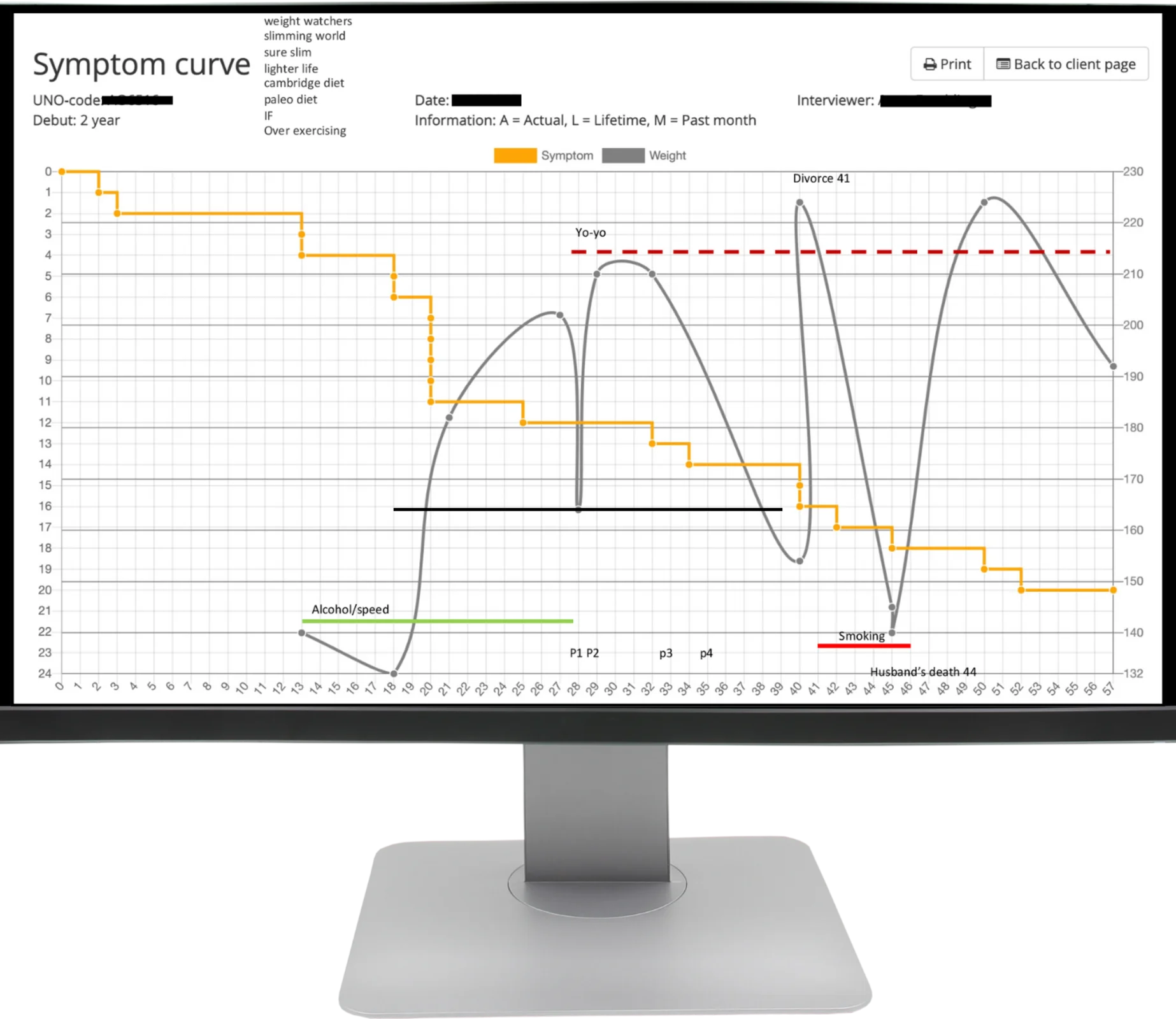Recovery from addiction is a complex journey that requires ongoing commitment and effort. One of the key challenges individuals face in maintaining their recovery is the risk of relapse. Relapse prevention skills play a crucial role in helping individuals navigate this challenge and build a solid foundation for a happy and fulfilling life in recovery. In this article, we will explore the importance of the relapse prevention plan, discuss common triggers of relapse, and provide proactive strategies to safeguard your recovery. By implementing these strategies, you can enhance your ability to prevent relapse and cultivate a thriving life beyond addiction.
Creating A Relapse Prevention Plan
A relapse prevention plan is a multifaceted approach that involves the use of coping skills, recovery tools, and mindfulness exercises to reduce the likelihood of relapse. It goes beyond simply abstaining from our drug of choice and encompasses learning new skills and habits that promote emotional regulation and healthy behaviours. By proactively addressing potential triggers and implementing effective strategies, individuals can strengthen their recovery and minimize the risk of relapse.
Identifying Common Triggers
Relapse triggers can vary from person to person, but there are several common triggers that individuals in recovery should be aware of. By understanding these triggers, individuals can develop personalized strategies to manage them effectively. Some of the most common triggers include:
- Boredom: Feeling unoccupied or lacking purpose can increase the risk of relapse.
- Stress: High levels of stress can overwhelm individuals and make them more vulnerable to relapse.
- Financial problems: Money-related stressors can trigger individuals to seek solace in substance use.
- Relationship issues: Difficulties in relationships, conflicts, or breakups can be challenging to navigate without resorting to substance use.
- Familiar sights and smells: Certain environments or cues associated with past substance use can evoke cravings and trigger relapse.
- Negative influences: Being around people who still use can undermine recovery efforts.
- Falling into old habits: Engaging in behaviours that were previously associated with substance use can increase the risk of relapse.
- Unresolved anger: Failure to manage anger in a healthy way can lead to emotional turmoil and relapse.
- Post-acute withdrawal symptoms: Lingering physical and emotional symptoms, such as anxiety and irritability, can make individuals susceptible to relapse.
- Poor self-care: Neglecting self-care practices, including stress management, sleep, and nutrition, can undermine overall well-being and increase vulnerability to relapse.
Relapse Prevention Plan
To effectively prevent relapse, it is crucial to adopt a proactive mindset and develop a comprehensive relapse prevention plan. By incorporating the following skills into your daily relapse prevention action plan, you can strengthen your recovery and reduce the risk of relapse:
Examples of a relapse prevention plan
1. Self-Care
Self-care plays a fundamental role in relapse prevention. Taking care of your physical, emotional, and mental well-being is essential for maintaining stability in recovery. Incorporate the following self-care practices into your daily routine:
- Establish a structured sleep schedule: Prioritize getting adequate sleep to promote physical and mental rejuvenation.
- Engage in regular physical exercise: Physical activity not only improves overall health but also helps reduce stress and promote better sleep.
- Maintain a balanced diet: Nourish your body with nutritious foods to support optimal physical and mental functioning and reduce inflammation.
- Practice stress management techniques: Explore various stress reduction techniques such as meditation, deep breathing exercises, or engaging in hobbies that bring you joy.
- Seek support: Reach out to your support network, whether it be friends, family, or a therapist, to discuss your emotions and challenges.
2. Recognise H.A.L.T.
The acronym H.A.L.T. stands for Hungry, Angry, Lonely, and Tired. These states of being can increase vulnerability to relapse. When you experience cravings or find yourself feeling off-balance, ask yourself if you are experiencing any of these symptoms. By recognizing and addressing these needs, you can reduce the risk of relapse. Take the following steps:
- Regularly check in with yourself and identify if you are hungry, angry, lonely, or tired.
- Address these needs promptly by nourishing your body, seeking resolution for anger, connecting with supportive individuals, and prioritizing rest and self-care.
3. Practice Mindfulness Meditation
Mindfulness meditation is a powerful tool for relapse prevention. By cultivating self-awareness and acceptance, individuals can better cope with potential triggers and cravings. Consider the following strategies:
- Engage in mindfulness meditation exercises: Set aside dedicated time each day to practice mindfulness meditation. Focus on your breath, sensations, and thoughts without judgment or attachment.
- Utilize mindfulness techniques during daily activities: Bring mindfulness to everyday tasks by paying attention to the present moment and your sensory experiences.
- Embrace acceptance and let go of control: Recognize that cravings may arise but develop the ability to observe them without acting upon them. Acceptance and letting go are key components of mindfulness practice.
4. Identify and Manage Triggers
Knowing your triggers is essential in developing an effective relapse prevention plan. Identify both internal and external triggers that may lead to relapse and develop strategies to manage them. Consider the following steps:
- Make a list of internal triggers: Reflect on the emotions, thoughts, or situations that often precede cravings or negative behaviours. Develop coping mechanisms to address these triggers, such as engaging in relaxation techniques or seeking support.
- Recognize external triggers: Identify people, places, or things that remind you of substance use. Create a plan to avoid or navigate these triggers, such as finding alternative social activities or developing new routines.
5. Engage in Supportive Communities
Joining a support group or engaging in supportive communities can significantly contribute to relapse prevention. Connecting with individuals who understand your journey and can provide guidance and accountability can be invaluable. Take the following steps:
- Participate in support groups: Explore options such as Sugar and Carb Addicts Anonymous (SCAA) or Narcotics Anonymous (NA) or IntheRooms.com to connect with peers who share similar experiences and challenges.
- Seek a sponsor or mentor: Establish a relationship with a trusted individual who can provide guidance and support throughout your recovery journey.
- Attend regular meetings: Make attending support group meetings a priority to stay connected, gain insights, and reinforce your commitment to recovery.
6. Utilize Grounding Techniques
Grounding techniques are effective tools for managing stress and anxiety, which are common triggers for relapse. Employ the 5-4-3-2-1 coping technique to redirect your focus and reduce cravings. Follow these steps:
- Acknowledge five things you see around you.
- Acknowledge four things you can touch around you.
- Acknowledge three things you can hear around you.
- Acknowledge two things you can smell around you.
- Acknowledge one thing you can taste around you.
7. Incorporate Deep Breathing Exercises
Deep breathing exercises are simple yet powerful techniques for managing emotions and promoting relaxation. By consciously controlling your breath, you can regulate your mood and reduce stress levels. Practice the 4 x 4 breathing technique:
- Take four deep breaths in through your nose, hold for a moment, and then release for four seconds.
- Focus on the movement of your diaphragm as you breathe deeply.
- Repeat this exercise whenever you feel overwhelmed or experience cravings.
8. Establish an Emergency Contact List
Preparing for moments of vulnerability is crucial in relapse prevention. Create a list of trusted individuals who are supportive of your recovery and can provide immediate help when needed. Keep this list readily accessible, and don’t hesitate to reach out for support during challenging times.
9. Play the Tape Through
When faced with the temptation to use substances, engage in the practice of “playing the tape through.” Mentally visualize the potential consequences and outcomes of relapse versus maintaining your sobriety. Consider the short-term and long-term effects and the impact on your overall well-being. This exercise can help you make informed decisions and reduce the risk of relapse.
10. Seek Professional Help
If you are struggling with relapse prevention or feel overwhelmed, seeking professional help is crucial. Reach out to a dedicated treatment provider or counsellor who specializes in addiction recovery. Professional guidance can provide additional strategies, support, and resources tailored to your specific needs and circumstances.
Conclusion
Relapse prevention skills are vital in maintaining long-term recovery and building a fulfilling life beyond addiction. By proactively implementing self-care practices, recognizing triggers, and developing coping strategies, individuals can significantly reduce the risk of relapse. Remember, recovery is a journey, and relapse prevention is an ongoing process. Embrace a proactive mindset, seek support when needed, and stay committed to your well-being and sobriety. With the right tools and support, you can navigate the challenges of recovery and create a brighter future.





